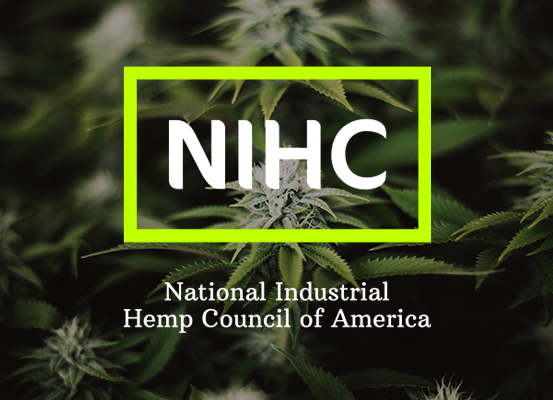Hemp Keeps Up Quick Pace
The hemp industry is moving at the speed of change.
Our industry has faced its own unique set of challenges since the passage of the 2018 farm bill and these growing pains are to be expected. NIHC’s core mission is to be your collective voice in front of lawmakers and regulators. Yet, NIHC can’t be your voice without your input and participation to solve these hurdles, current and new.
Some issues have yet to be resolved.
For instance, businesses in the hemp economy need equal access to the banking sector. The CBD market needs regulatory certainty; specifically whether or not CBD can be sold as food, or a supplement, or perhaps both? Because hemp looks like marijuana; we need safe transit resolved because on the spot, law enforcement can’t tell the difference. This is why we’re in constant conversations in Washington, DC and with states about testing and proper documentation. This will ensure that those involved in hemp commerce, including law enforcement and the financial markets, can distinguish between hemp and marijuana. This includes the controversial Delta-8.
The USDA continues to promulgate approvals for state programs to license farmers while other federal agencies lag behind in regulations for downstream businesses. We need certainty, but we need patience and a thoughtful approach. Last years’ election brought significant change to Washington with a new President who is still filling important roles and a new Congress. Patience is a virtue.
We are excited to see and be a part of the National Association of State Departments of Agriculture (NASDA) initiative on one percent. But what our industry needs is a coordinated state and federal strategy. We still have state legislators introducing a patchwork of laws governing our industry at the local level all across the country.
What our industry needs is a coordinated state and federal strategy. We still have state legislators introducing a patchwork of laws governing our industry at the local level all across the country.
To illustrate, here are just two of many examples of what is happening at the state level.
In New York state, Governor Cuomo recently signed into law an adult use marijuana legislation which creates a new state regulatory agency for both hemp and cannabis. That might make it easier to have one regulatory agency with jurisdiction over hemp and cannabis, but we need to better understand the role of the state department of agriculture. We also need to answer the question, what will happen to the hemp industry? It now appears it’s more lucrative to grow high-THC products in the second largest state in the country. Is the compromise on smokable hemp (that smokable hemp can only be sold in dispensaries) a positive thing for the hemp industry? Only time will tell.
In Alabama, there is a new bill that has been introduced in the state Senate that would add delta-8 and delta-10 to the list of controlled substances in the state. We can applaud the Alabama state legislature for trying to tackle the problem of delta-8. But, we believe the Alabama state senate is going down the wrong road to solve an easy problem. Delta-8 THC, per the 2018 farm bill, is a legal part of the hemp plant that exists in the plant’s natural form in only a minuscule amount that has no psychoactive effect. The problem is that some in our industry are taking advantage of a loophole in the law to manufacture artificially high concentrations of delta-8 and add them to hemp products, resulting in levels of 10% delta-8 and higher to create a psychoactive effect that would not occur otherwise. Changing the statutory definition of hemp from .3 percent delta-9 THC to one percent total THC, as has been proposed by NASDA and other stakeholders, would eliminate this loophole and prevent psychoactive delta-8 THC products from entering the market as hemp or any other non-controlled substance.
NIHC is a growing by the day.
We have a ten-year plan and have consistently exceeded our advocacy and policy goals in our nation’s Capitol. In our plans, our policy and operating budget didn’t include state advocacy. That means we don’t have the full-time staff yet hired to monitor legislation at the state level. We have been working since the beginning of the year to build and execute a strategy for successful state advocacy, it just needs to be resourced.
We realize there is a lot going on in our industry and we’d love to have NIHC member feedback on what we should be engaging on in your specific state. If you think we need to engage on a particular issue, please email us at info@hempindustrial.com.
If you haven’t become a member yet, please consider joining NIHC so we can all work better together.

